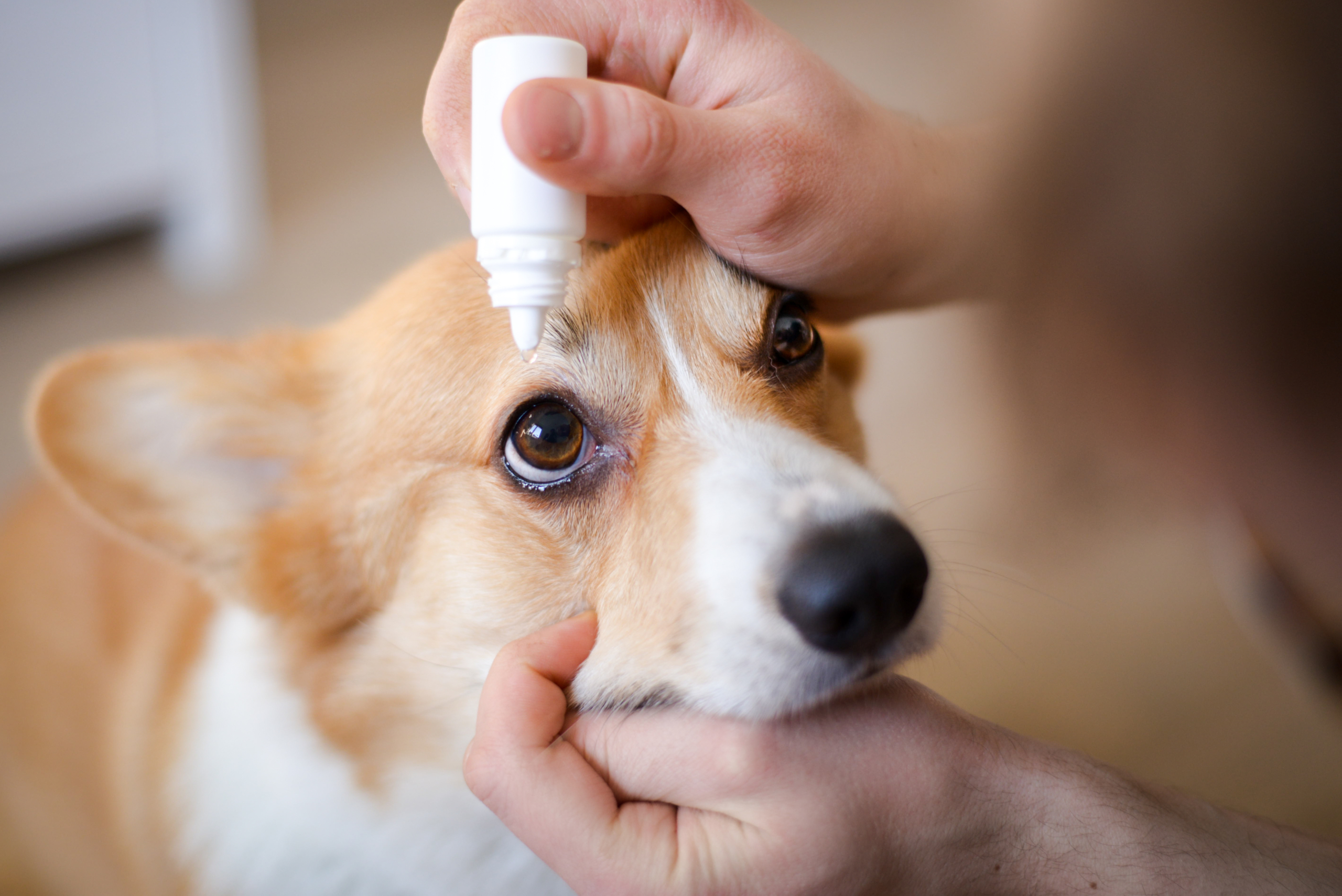Brachycephalic dog breeds—those with short noses and flat faces—are undeniably adorable, but their unique anatomy makes them prone to a variety of health issues, including serious eye problems. One of the most common and concerning conditions they face is corneal ulcers, which, if left untreated, can lead to severe pain, vision loss, and even eye removal.
Understanding how to spot corneal ulcers early and seeking prompt treatment, such as Vetrix EyeQ Amniotic Eye Drops, can help prevent complications and protect your dog’s eyesight.
Brachycephalic Dog Breeds at Risk
Brachycephalic breeds have bulging eyes, shallow eye sockets, and reduced eyelid coverage, making them highly susceptible to corneal ulcers. Some of the most commonly affected breeds include:
- French Bulldogs
- English Bulldogs
- Pugs
- Boston Terriers
- Shih Tzus
- Pekingese
Because their eyes protrude, they are more likely to experience injuries from debris, rough play, or even rubbing their faces on surfaces. Additionally, some brachycephalic dogs struggle with incomplete blinking, which prevents their corneas from staying properly lubricated, increasing the risk of ulcers.
How to Spot Corneal Ulcers in Your Dog
Corneal ulcers can develop quickly, so it’s crucial to recognize the early signs. If your dog is showing any of these symptoms, consult a veterinarian immediately:
✔️ Excessive blinking or squinting
✔️ Redness in the eye
✔️ Watery or thick eye discharge
✔️ Cloudiness or a visible spot on the eye
✔️ Rubbing the eye with paws or against furniture
✔️ Reluctance to open the eye in bright light
Since brachycephalic breeds already have compromised eye health, even minor eye irritation can quickly escalate into a serious ulcer.
The Dangers of Untreated Corneal Ulcers
Ignoring a corneal ulcer can have devastating consequences for your pet. Without proper treatment, ulcers can:
❌ Deepen into the eye, leading to perforation and irreversible damage
❌ Cause extreme pain, affecting your dog’s quality of life
❌ Result in blindness, especially if the cornea ruptures
❌ Require expensive surgery, with procedures costing up to $2,000 per eye
❌ Lead to eye removal (enucleation) in severe cases
The best way to protect your dog’s vision is early intervention. Treating corneal ulcers as soon as they appear can prevent long-term damage and reduce the risk of surgical intervention.
Vetrix EyeQ: A Cutting-Edge Solution for Corneal Ulcers
When it comes to treating corneal ulcers, Vetrix EyeQ Amniotic Eye Drops is a great solution for early treatment.
Why Choose EyeQ for Your Dog?
✔️ Prevents Vision Loss – Supports natural healing, reducing the risk of blindness
✔️ Reduces Pain – Soothes irritation and discomfort associated with ulcers
✔️ Speeds Up Healing – Encourages faster corneal repair with regenerative properties
✔️ Avoids Costly Surgery – Helps prevent the need for expensive and invasive procedures
Unlike traditional treatments that only address symptoms, EyeQ enhances corneal regeneration, making it a powerful tool for veterinarians treating brachycephalic dogs with eye issues.
Protect Your Dog’s Eyes Before It’s Too Late
Brachycephalic breeds are prone to eye injuries and corneal ulcers, but with early detection and the right treatment, you can keep your pet comfortable and protect their vision. By watching for symptoms and using Vetrix EyeQ Amniotic Eye Drops as an early intervention, you can avoid painful complications, expensive surgeries, and potential blindness.
If your dog is showing signs of an eye ulcer, don’t wait—consult your veterinarian today and ask about Vetrix EyeQ.


